School Board Election: Q&A with the Candidates
The 2022 midterm election brings the Chelsea School Board race to a close on November 8. Throughout Chelsea there are a plethora of signs promoting school board candidates. Kate Henson, Michelle Craig, Dr. Scott Moore, and Dr. Glenn Fox have united their campaigns around issues of diversity, equity, and inclusion and have expressed support for administrators’ decisions at the district level. Candidates Tom Golding, Ross Greenstein, Julianne Mallie and John Piatt have linked their campaigns and have placed heavy emphasis on parental choice and voice in district decisions.
School board elections are technically non-partisan, but with the rise of more controversial issues after the COVID-19 pandemic, many in the community believe this election has become more politically polarized than ever before.
Reporters from The Bleu Print reached out to all eight candidates for comment on a list of student-generated questions. The content in this article reflects responses The Bleu Print has received so far. If additional candidates respond, our staff will continue to update this story.
On the role of a School Board member:
Michelle Craig:
“On the surface, the role of a school board member is to create district policy, hire and then support and evaluate the SuperIntendent, approve curriculum, and approve the budget for the school district. Specifically, though, I believe they should do these tasks while listening to and collaborating with students, teachers, administrators, staff, parents and the community to give the youth of our district the best possible education and to make sure they are healthy, knowledgeable, empathetic, well-rounded critical thinkers ready to go out into the real world and be life-long learners.”
Kate Henson:
“School Board members should work cooperatively as a team to evaluate and support the superintendent, set policy, and manage budget oversight. We act as a conduit bringing perspectives from all community members to the table to inform decision making.”
Dr. Glenn Fox:
“A school board member is one of several elected trustees who serve in stewardship of a school district. They share several primary responsibilities: 1) to supervise the superintendent, 2) to approve a district budget, 3) to make district policy, 4) to approve curriculum presented by the superintendent, and 5) to evaluate and plan for infrastructural needs.”
Dr. Scott Moore:
“The role of a board member consists of 3 things. Helping set policies for the district. Approving the budget. Supporting and supervising the Superintendent.”
Ross Greenstein:
“I believe that the role of the school board is an oversight committee that oversees goal setting, policy, and evaluation of the superintendent, budget, curriculum, staff, and facilities. I will follow the current Michigan law and the revised school code that gives the BOE general powers to educate students, provide for the safety and welfare of the students, control the expenditure and receipt of school funds, and negotiate with employee unions regarding salaries and other conditions of employment.
“I am committed to working collaboratively with other board members in a positive, productive, and student-focused environment. I am student-focused and dedicated to ensuring that all students are successful in achieving their maximum potential. I am also looking forward to serving the Chelsea community and the Chelsea school district.”
On the topics of prayer in school and the pledge of allegiance:
Michelle Craig:
“My thoughts on prayer in school is that silently/quietly or out loud within a group of like-minded individuals is perfectly fine as it’s their right to free speech. No one in a public school should be forced to pray for any reason against their will. As a public school, we are part of the government of the United States and religious freedom is protected by the first amendment. As for the Pledge of Allegiance, the phrase “under God” was not originally in there. It was only added to the Pledge in 1954 when signed into law by President Eisenhower. I personally believe that adding “under God” to the Pledge of Allegiance conflicts with the United States’ Constitution and our commitment to religious freedom.”
Kate Henson:
“Teachers and Students should absolutely be supported in their first amendment right to pray in accordance with their religion. Religion and prayer are individual choices and cannot be mandatory or required. While the pledge of allegiance is a daily ritual in Chelsea classrooms it is not mandatory and any student who feels uncomfortable or unwilling will not be persecuted for not participating.”
Dr. Glenn Fox:
“Public schools may not endorse a particular religion, but they also may not prohibit expression of it. I would stand by the First Amendment that an individual has a right to pray in school as an expression of their faith. I do not feel it is appropriate for a school or school employees to organize or lead prayer as this creates a de facto school-endorsed religion.
“I like the concept of a Pledge of Allegiance that unites people as citizens of the USA. Finding commonalities and ideas under which to unite are powerful ways of maintaining unity and remembering that we have common values, goals, and aspirations. Unfortunately, historically and at present, not all individuals may say the Pledge with comfort or pride. Engaged citizenship requires that we recognize systemic inequities and biases, and work to eliminate them. As citizens and members of a community, our struggle should include protection and empowerment of the vulnerable and marginalized. Our unity cannot be at the expense of the suffering of the excluded, for without their participation we have division not unity.”
Dr. Scott Moore:
“Students should be able to pray in school individually or in a student group if that is their wish. I do not believe prayer should be an expectation of any student in a larger setting. Although reciting the Pledge of Allegiance is part of each day in many schools, including Chelsea, protected legal precedent states any student can be exempt from participating.”
Ross Greenstein:
“Schools should not withhold a student’s choice to pray. Schools and teachers should not promote a particular religion. If an individual chooses to pray in school, a prayer room should be made available for them. Prayer should not interfere with the other students’ class time. The pledge of allegiance will always remind us that we are a free nation and pay our respect to those who fought to abolish slavery and destroy Nazi fascism.”
On the ongoing national debate about “Critical Race Theory” and its relevance to Chelsea Schools:
Michelle Craig:
“‘Critical Race Theory’ is a class at Harvard Law School that discusses the effect systemic racism has had, and continues to have, in our legal institutions and how as lawyers and judges they may work to resolve it.. As of late, it has been misrepresented to stir up fear in the American public by saying that CRT is being taught to children in K-12 public schools and encompasses anything that would make white kids feel uncomfortable, including, but not limited to, the history of slavery and racism in the US. In reality, the history of racism in the US (and in the world) should be taught, not to make kids feel uncomfortable but to teach history as it actually happened. ‘Those who don’t know history are doomed to repeat it’, is a long-standing educational truth. No one should feel they are less than by learning from historical facts. Real life is full of uncomfortable situations. Learning how to listen, understand, process and grow through difficult situations is part of what teachers, and parents, should be teaching their children to get them ready for life after school.”
Kate Henson:
“Critical Race Theory has been misrepresented to cause fear. It is simply a legal and academic framework that explores how social conceptions of race and ethnicity shape social and political movements, laws and media. Any debate about Critical Race Theory in Chelsea is irrelevant as it is not taught in our schools.”
Dr. Glenn Fox:
“Critical Race Theory is an academic concept nearly half a century old. CRT was developed in the 1970s from legal scholars at Harvard and it has since been weaponized to scare people by confounding CRT with any ‘woke’ propaganda. Misrepresenting CRT stifles teaching that incorporates elements of history, sociology, media, politics, or literary analysis explaining modern inequalities including systemic biases or prejudices.
“CRT is not being taught in Chelsea Schools, but it has entered into the parents’ awareness as part of national discourse. Some states have enacted legislation that prohibits teaching CRT or using CRT in textbooks, which has the consequence of prohibiting genuine discussion and learning of anything related to inequities, biases, or prejudices pertaining to race. This greatly limits the scope of education, forces a sanitized and biased perspective of history, sociology, media, politics, literary analysis, etc.”
Dr. Scott Moore:
“The challenge with CRT is that it is defined differently by different people. We need to learn the history of this country and the events which have shaped it. Some of these events are things to be proud of and some of these events are things to learn from. There should continue to be room to engage in these conversations in a constructive classroom environment.”
Ross Greenstein:
“CRT is a racist ideology that attempts to divide and categorize individuals based on the color of their skin, gender, ethnicity, and religion rather than individual character and has no place in Chelsea schools.”
On the importance and relevance of Diversity, Equity, and Inclusion in Chelsea Schools and the effect on students’ educational experience:
Michelle Craig:
“I believe Diversity, Equity and Inclusion is extremely important and relevant to Chelsea Schools. A student is a whole person, not just a storage unit for academic knowledge and skills. In order for a student to be ready to take in and really learn the academics, they need to feel like they belong and feel comfortable and safe in their environment. That happens through DEI and social, emotional and mental learning. Therefore I believe it is critical in order for students to have a positive and successful educational experience.”
Kate Henson:
“Diversity, Belonging, Equity and Inclusion practices are paramount to mending the divisions we see in our society today. No matter who you love, how you identify, what color your skin, which religion you practice or any other labels with which we can divide a population, we as human beings at our core want to be loved and accepted. Equipping kids with the tools to help them feel welcome and safe leads to better learning outcomes, less violence in schools and healthier relationships throughout their lives.”
Dr. Glenn Fox:
“Diversity, Equity, and Inclusion (DEI) are important for all organizations and especially for schools. Research demonstrates that organizations which are more diverse are more creative, successful, and resilient. Diversity is best maintained in an environment of equity and inclusion where a diverse group of individuals are provided with the tools and considerations needed to succeed and they feel welcomed as part of the team. In Chelsea Schools, our DEI initiative also includes Belonging, which is the measure of how well DEI values and processes are integrated into what we do. If we are successful with DEI, then all people will feel an authentic sense of belonging. Belonging forms a large part of the foundation of social and emotional needs. When students’ needs are met, they learn more easily, understand more deeply, and retain more knowledge.
“As one of the purposes of school is to prepare students for the world that comes next, students must learn to function as part of diverse teams, support their colleagues, and be positive members of our community. These experiences provide our graduates with the knowledge, skills, and abilities to succeed in the world that comes after school.”
Dr. Scott Moore:
“All students should feel comfortable in their environment at school. Any student has that right. Diversity, Equity and Inclusion are common sense tools we can utilize to ensure this outcome. Our students come to the table with different and valuable resources and life experiences. We should champion these differences, call on our students to be active participants in their education and understand that different students require different efforts in order to succeed.”
Ross Greenstein:
“Shouldn’t we be conscious of our daily interactions to ensure that everyone we meet, every coworker, and every classmate feels included? We must further guide and support a student’s educational experience to allow an individual to reach one’s capacities and skills to reach their fullest potential. Not one student is more important than the other. Each student is unique.”
On the national controversy surrounding banning books in school libraries:
Michelle Craig:
“Until recently I didn’t think that the book banning topic was relevant to Chelsea Schools. However, during this campaign, I have learned that it apparently is an issue for some parents in the district. I personally do not think any of the current books in the libraries should be removed. I think we need to trust our expert librarians and teachers who know what books are appropriate for students in each building.”
Kate Henson:
“Books are how we learn about the past, experience new worlds and discover new passions. They are powerful teaching tools that our educated and experienced teachers and media center staff ensure are age-appropriate for students.”
Dr. Glenn Fox:
“Book banning, like most things, exists on a spectrum: from a complete ban to soft bans. I have heard community members calling for the banning (and even burning!) of certain books, e.g. The Bluest Eye by Toni Morrison. I have also heard community members refer to books as “pornography and obscene,” as rhtetoric. Ideas such as book ratings and restrictions have also been advanced (as examples of soft bans).
“Personally, I am enthusiastically against book banning. I believe books are important for learning, building empathy and understanding, and the development of identity. Parents and caregivers should invest time in helping to promote literacy and reading. They should invest energy in discussing with their children what they are reading, and provide them the support they need to properly understand and contextualize what they read as issues arise. Learning is a process of challenge and growth, and books are necessary instruments of learning.”
Dr. Scott Moore:
“There are no books I would ban. I support the school district’s current policy of allowing families to restrict their student’s access to requested titles if that is their wish. However, I also feel that those same families should not be allowed to dictate what is in the library for other students.”
Ross Greenstein:
“I am finally glad to answer this question in print. I do not support banning books. I do not believe book banning is relevant in Chelsea, as I don’t recall anyone explicitly calling for the ban of books. However, I think parents should know what reading material their children’s curriculum includes and its content. If there is a topic that is not congruent with one’s family’s culture or religious mores, then I think schools should respect those choices, and an acceptable alternative should be made available.”
Candidates’ main issues and goals if elected:
Michelle Craig:
“If elected to the board, my main goals are to continue the excellent, well-rounded education that Chelsea is known for as well as helping to make any improvements needed as we move forward in the future. Also, since I have watched my best friend for the last 10 yrs advocate in the Ann Arbor school district for her son with Autism, I have been wanting to help Chelsea’s Special Education Program continue to improve and grow to make sure all students get the best education possible.”
Kate Henson:
“I want to use my skills as an organizational development specialist to bring the board together quickly so we can begin to effectively work on issues and opportunities. I will also bring my in-classroom experience to the table to inform decision making in the best interest of teachers and students.
“The issues I am passionate about championing as a school board trustee are providing access to mental health tools and services for students and teachers. Supporting initiatives that bring the Portrait of a Graduate to life in the classroom to grow students’ academic, social, and emotional development skills. Collaborating on the development of strategies to show our educators how valued they are. This will be important for retaining and attracting top talent. I am also dedicated to living the values of diversity, belonging, equity and inclusion that the district is already fostering in our schools.”
Dr. Glenn Fox:
“If elected, my goals include: supporting teachers, parapros, staff, & administrators; maintaining & growing our culture of academic & occupational excellence; maintaining an environment of belonging, diversity, equity, & inclusion; supporting the CSD’s Portrait of a Graduate for academic, social, & emotional development; supporting student wellness; evaluating the CSD’s recruitment processes to continue to attract the best workforce; and developing finance plans that meet district needs, support district values, & position the CSD for long-term success.
“To accomplish these goals, I will work tirelessly & cooperatively as a member of a seven person board to support the Superintendent. I will advocate for consensus-based solutions informed by all stakeholders & driven by the best available data. I will use my background as an educator, scientist, & administrator to listen, thoughtfully engage, & effectively collaborate with faculty, staff, administration, students, families, & Chelsea community members.”
Dr. Scott Moore:
“My number one goal is restoring the trust in the relationship between the District and families. COVID was challenging for schools and for families. There were hard realities that strained this relationship. Families and the District lost touch with each other because of these circumstances.
“My other goal is maintaining the excellence which has defined this school district. My family moved here 20 years ago because of these schools and I would make that same decision today–Chelsea is a proven quality district.”
Ross Greenstein:
“I have a few goals I’d like to share: Academics. Education is one of the most important gifts we give to our children. However, academic excellence is more than taking AP classes and earning high grades. Again, it means helping to develop an individual’s capacities and skills to their fullest potential. I am confident that our teachers and students can achieve this.
“Consortium access and reestablishing mentor programs. The demand for skilled labor has never been higher. Unfortunately, a stigma is so strong today that young people don’t associate high pay and job security with trade schools. However, unlike a bachelor’s degree, an education in a trade school is far more likely to yield a job due to the need for specialized skills that affect all areas of our lives. Foods, roads, plumbing, energy, construction, vehicles, and more –all the necessities of life that tradespeople make possible. As trade industries continue to expand and available skilled labor declines, it is essential to promote trade schools as an equally viable, well-paying career path. I will raise awareness of the alternative education pathways offered in Michigan and throughout the country.
“Mental health. I feel that we need to identify, refer and then be able to provide adequate resource opportunities for those students and their families. Second, we need to provide specific training for teachers/counselors within the district. Third, the district needs to provide an adequate number of qualified individuals and resources to support the needs of the district. Lastly, we need to increase the accessibility for the entire community; current wait times are unacceptable.
“Bullying. Bullying is unacceptable and must be identified immediately and called out every time. Proper communication methods are to be followed and reinforced. In addition, those bullied must be supported and protected. Finally, there should be an algorithm in place, based on evidence, that the school should follow if there are repeat offenses. We must be the change we wish to see in the world, starting at home.”
The candidates will continue their campaigns ahead of November’s election, when voters in the district will decide which four will sit on the school board in January. The Bleu Print will continue to cover this important race.
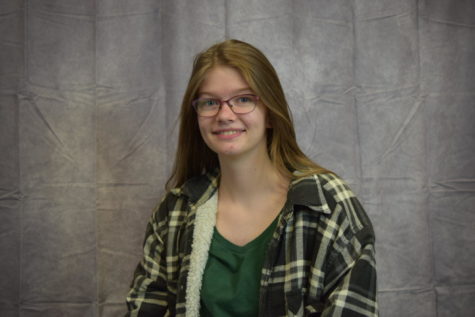
Phoebe is a senior at CHS, and this is her first year writing for the Bleu Print. When not writing emails to community members and stressing about deadlines,...

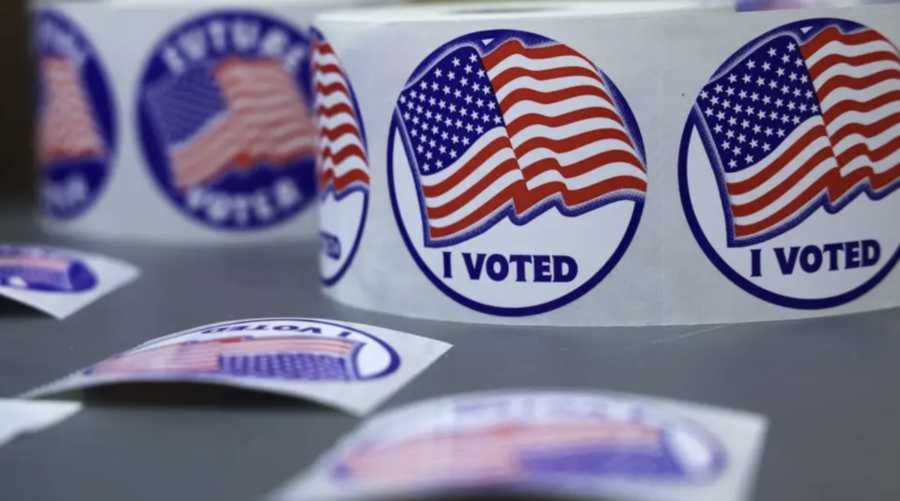

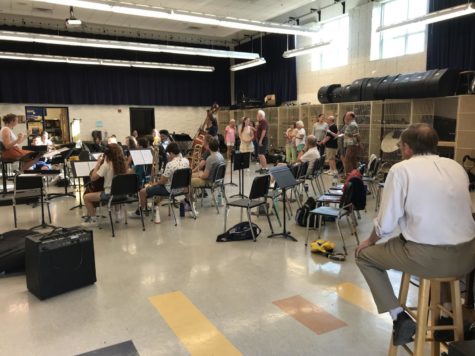
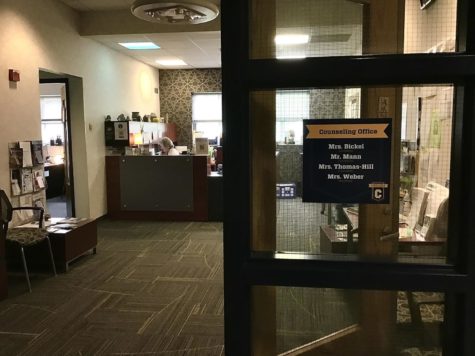


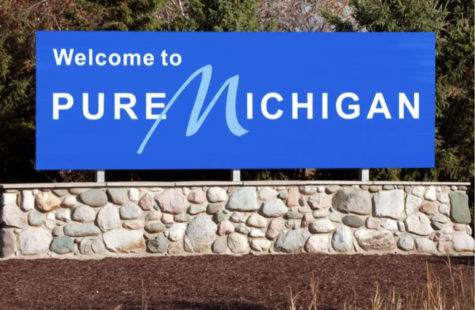
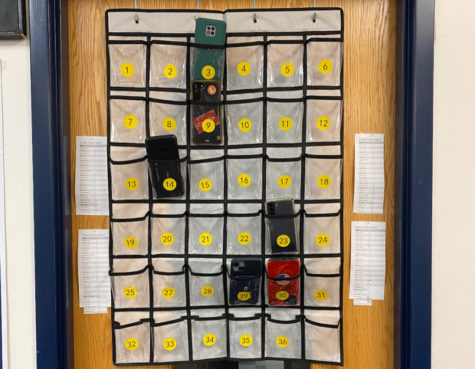
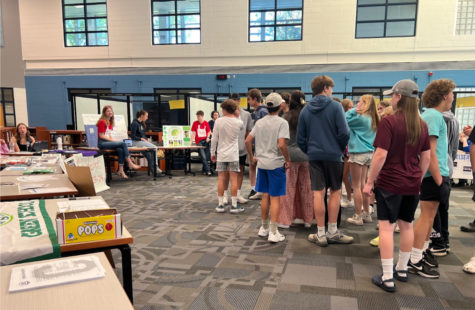

Sarah • Oct 15, 2022 at 1:22 PM
Did the other 4 candidates not respond at all? Or are their responses coming separately?
CHS BleuPrint • Oct 15, 2022 at 4:31 PM
We have reached out to all of the candidates and are awaiting their responses. As soon as we receive their responses we will update our website.
-CHS BleuPrint